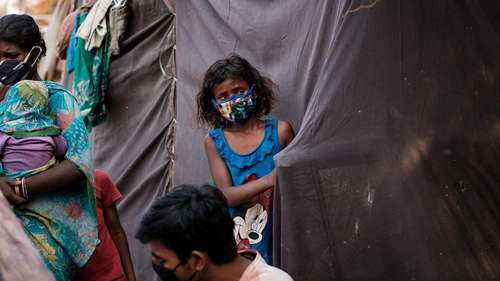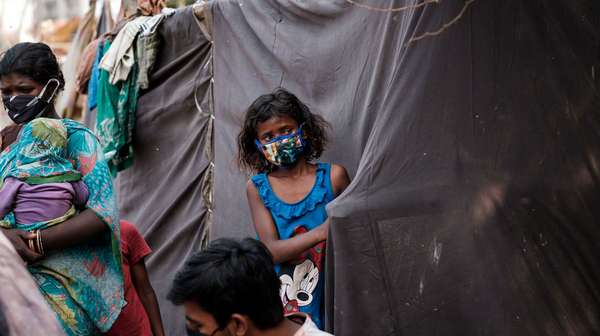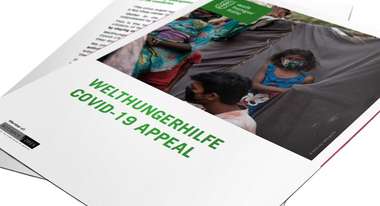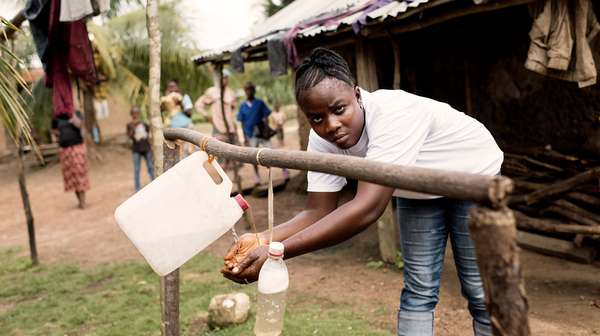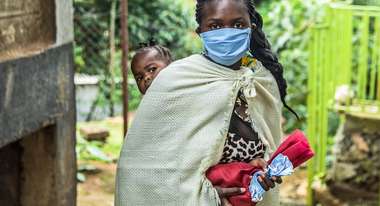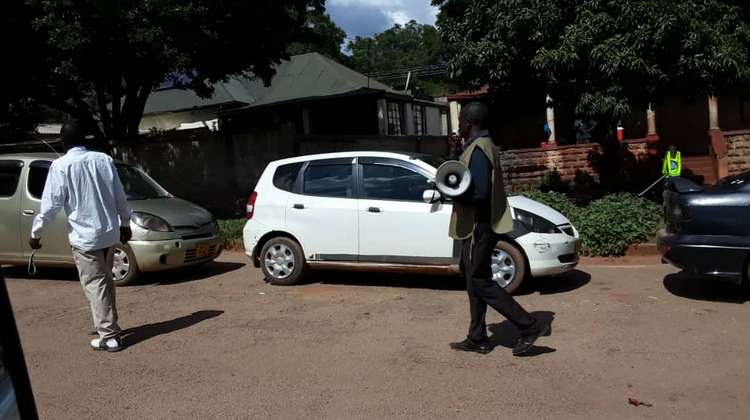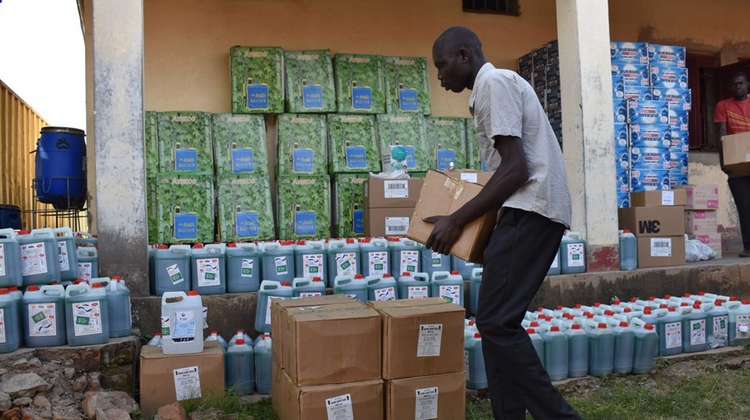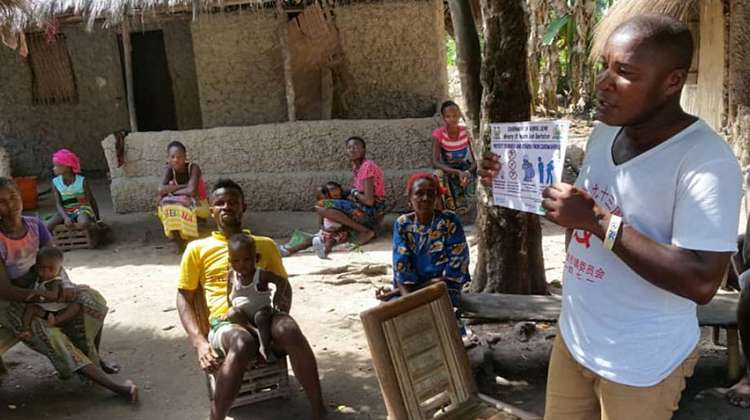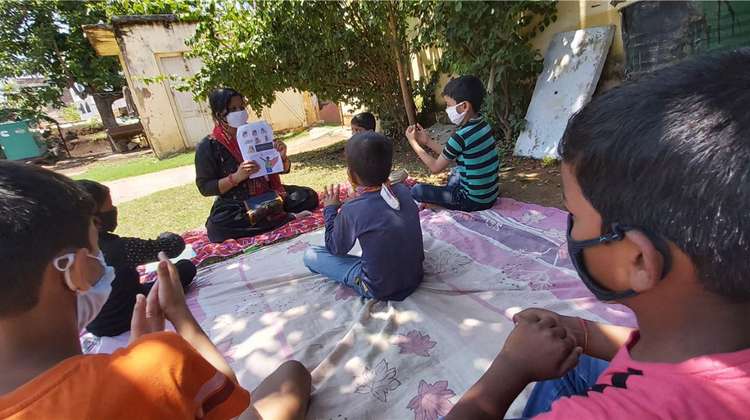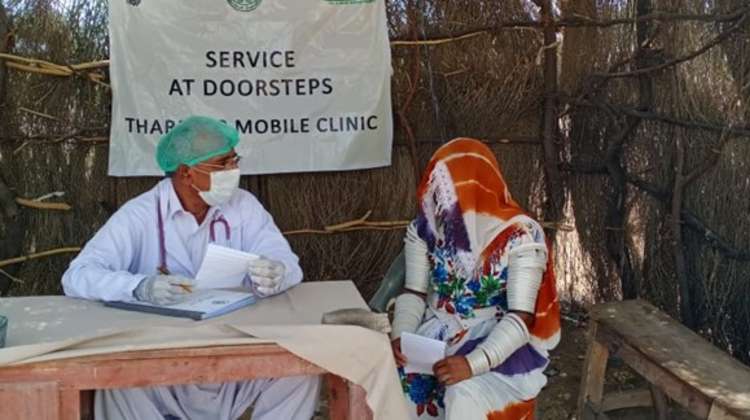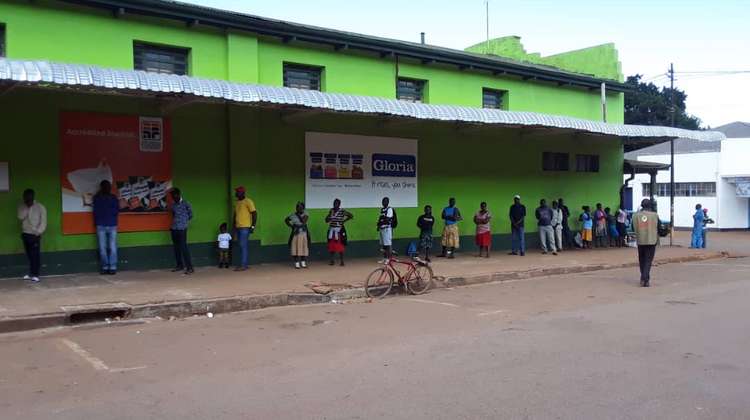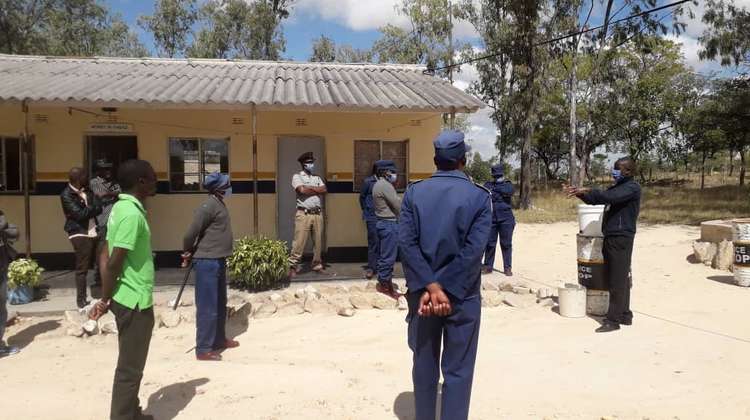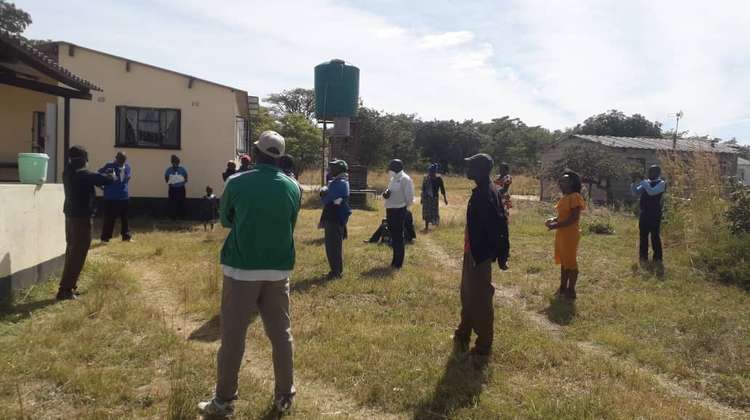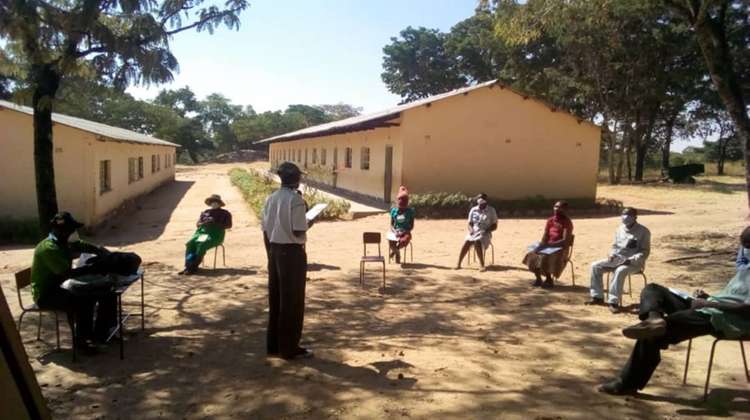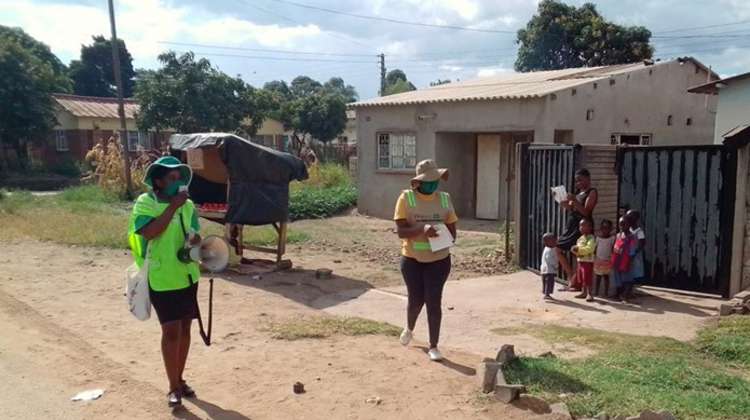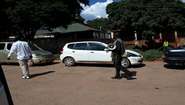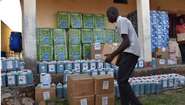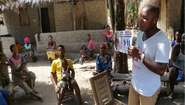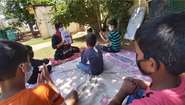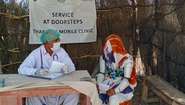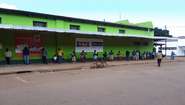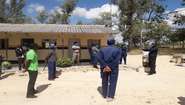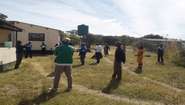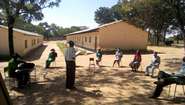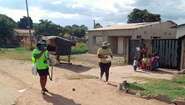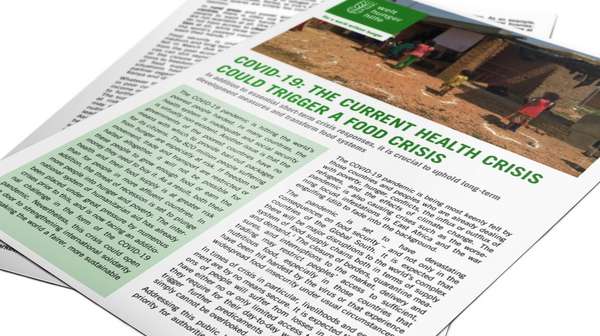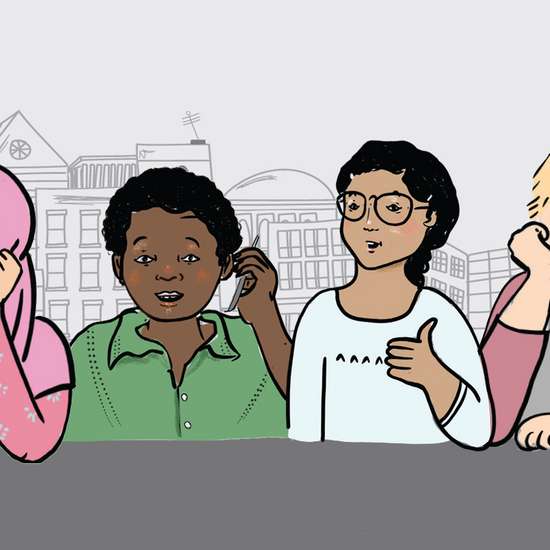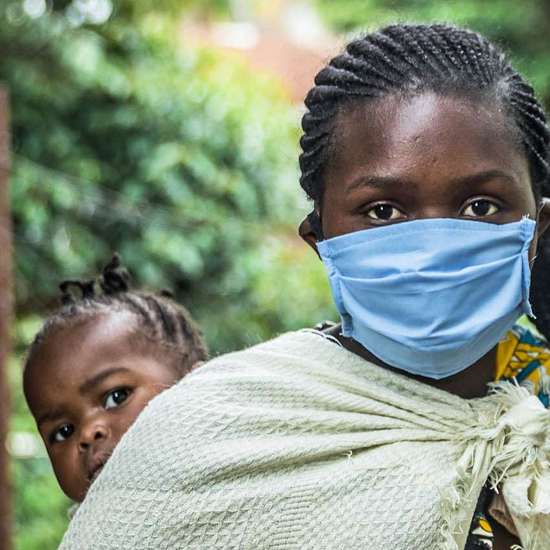Table of Contents
- Help us raise €100 million
- Why support our work
- Under-resourced health systems may lead to increased deaths Welthungerhilfe’s
- COVID-19 global programme strategy
- Gender and protection messages in all COVID-19 awareness raising campaigns
- How we will work to mitigate the effects of the COVID-19 pandemic
- Country insights
“The virus might not reach us, but hunger will kill us for sure.”
Mohammed Kanneh Tea shop owner in Kenema District, Sierra LeoneThis is the harsh choice that the COVID-19 pandemic is forcing upon the poorest citizens of the world: risk dying of COVID-19 by going out to work; or risk dying of hunger by staying at home.
Welthungerhilfe presents the global COVID-19 programme for emergency aid and long-term development
Welthungerhilfe (WHH) is asking partners and supporters to contribute to its Global COVID-19 Response Programme, to support five million people in 36 countries so that they don’t have to make that choice.
We plan to raise €100 million: this would finance life-saving emergency response activities to contain the spread of COVID-19, and to reduce illness, mortality and malnutrition. It would fund activities to prevent the loss of livelihoods and assets linked to the prolonged movement restrictions across countries.
It would also support recovery, resilience-building and development work to address the needs of the most vulnerable populations for up to two years, while the world struggles to find a vaccine for COVID-19.
Help us raise €100 million
You want to help us implement the COVID-19 programme? You are welcome to contact us!
Give us a call or write an email. We will gladly provide you with further information and answer your questions.
Download (PDF)
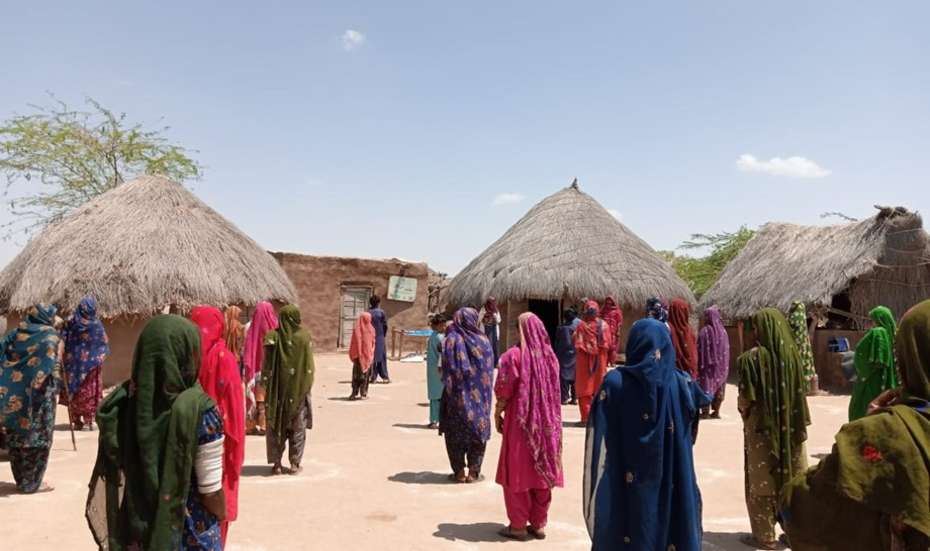
This is a global pandemic and a crisis on an enormous scale; but the local implications will be different in every country. We are a leading international NGO, at the heart of global aid technical debates, progress and standard-setting; we have responded to dozens of major humanitarian crises in the last 50 years. But we also rely on the knowledge of our local partners and the staff in our country offices, who come from the provinces, districts and even villages that we serve.

Our staff members’ and partners’ ideas, their courage, and their experiences of responding to previous crises are the foundation of our work; they have been our greatest strength in the past and they will be again for this response.
Mathias Mogge CEO of WelthungerhilfeWhy support our work
- Reach and presence on the ground. WHH assists an average of 10 million people annually across 36 countries. WHH is working in six of the eight countries ranked most vulnerable to COVID-19 by the United Nations/European Commission INFORM Index. We are already assisting hundreds of thousands of people through dozens of COVID-19 specific projects.
- From crisis to recovery to ‘resilience’. We work with communities affected by natural disasters or conflict not only in the initial weeks of the crisis, but for months and even years afterwards, so they are stronger than ever before, and better prepared to face future emergencies.
- Partnering with local civil society means better quality. WHH works with over 200 local NGO partners across the globe; their knowledge and passion build on our own.
- Our balance of expertise. Half of our work worldwide is in humanitarian assistance and in providing water, sanitation and hygiene (WASH) – essential for preventing the transmission of the disease. The other half of our work is in livelihoods, food and nutrition security, economic and skills development, and agriculture – essential to the most in-need communities as they weather the economic and food security crisis caused by COVID-19.
The impacts of COVID-19 in the countries we work in
Without rapid and forward-looking action, coronavirus in Africa could lead to a humanitarian disaster of enormous proportions.
In Africa and some other parts of the Global South, the health impacts of the pandemic have not yet been as severe as in the world’s leading economies. There is agreement that the swift containment measures taken by governments have helped; there is discussion about factors such as demographics, transportation infrastructure and habits, and even levels of air pollution; but most significantly there is consensus on two fundamental points: that these countries remain at high risk to health impacts, and that they are already suffering from the socio-economic effects of the COVID-19 crisis.
Under-resourced health systems may lead to increased deaths
With regard to the health impacts of the pandemic, there is no room for complacency. Most of the countries where WHH works have severely under-resourced health systems, particularly with regards to critical needs such as ventilators, oxygen, intensive care beds, and staff. Many also have large population groups with underlying conditions such as HIV, tuberculosis, chronic parasite infestation, and malnutrition. Even low numbers of COVID-19 cases could be sufficient to overwhelm their health system capacities, and lead to increased deaths from both COVID-19 and non-COVID-19 diseases.
With regard to the pandemic’s ‘secondary impacts’, the measures to contain the virus are having devastating consequences on people’s livelihoods. This is especially so in poverty-stricken and conflict-affected contexts, where COVID-19 exacerbates pre-existing crises such as displacement, malnutrition, drought, locusts, conflict and economic collapse. The World Food Programme-led Global Report on Food Crisis 2020 estimates that the crisis could almost double the number of people living "on the brink of starvation" to 265 million.
WHH will pay particular attention to those defined by the Global Protection Cluster as being ‘most vulnerable’ to the impacts of the COVID-19 pandemic: people with underlying medical conditions, the elderly, women, children, refugees and internally displaced persons (IDP), daily and migrant workers as well as marginalised and indigenous populations. WHH will ensure those groups are represented and participate in the planning of our interventions, and will support them to access services, information and humanitarian assistance.
Welthungerhilfe’s COVID-19 global programme strategy
Welthungerhilfe’s COVID-19 programme strategy has four components: humanitarian response; recovery and resilience-building; advocacy; and community engagement.
Across these four components of our integrated response, WHH will work in a principled and accountable way. We will align our work with the COVID-19 responses of the Ministry of Health in the countries where we work, coordinate closely with other health and humanitarian and development actors, and follow international standards from organisations such as the WHO and SPHERE, including the Core Humanitarian Standard. Activities proposed under this appeal will be linked to the United Nations Global Humanitarian Response Plan for COVID-19. Do no harm remains at the forefront of our minds: reducing unnecessary risks, using appropriate protection, and maintaining physical distancing throughout our interventions.
Gender and protection messages in all COVID-19 awareness raising campaigns
Finally, Welhungerhilfe knows that women and girls will pay a high price in this crisis – being more exposed to the virus and seeing an increase in their workload. According to traditional gender roles, women and girls are typically in charge of tending the sick, taking care of children when schools are closed, and managing the household during confinement. They are also more likely to suffer from violence and abuse at times of stress within the family. WHH will include gender and protection messages in all COVID-19 awareness raising campaigns and design COVID-19 responses with a gender lens.
How we will work to mitigate the effects of the COVID-19 pandemic
Risk communication and preventing COVID-19 transmission
Risk communication and community engagement are essential components of our response. Knowledge of the COVID-19 virus and how it is transmitted, and understanding appropriate preventive measures enable individuals and communities to adopt good practices which require, in many cases, important adaptations to existing behaviour. It also reduces stigmatisation based on ignorance and fear and prevents people from using ineffective or harmful practices they wrongly believe could help them and their families.
Positive hygiene practices are key to prevent the spread of the virus.The simple act of hand-washing with soap remains one of the best defences against coronavirus, other infectious pathogens and common global killers such as diarrhoeal diseases and respiratory infections. However, rates of handwashing with soap at critical times (such as after using the toilet or before eating) are less than 20% globally.
The risk communication and hygiene activities will be coupled with tangible resources to help families protect themselves. Cash and voucher programming is a key strength of WHH, and highly relevant for the COVID-19 crisis, as it gives vulnerable populations choices about how best to meet their priority needs; in addition it supports local markets which in many cases have been weakened by the COVID-19-related restrictions on movement.
In addition, WHH will ensure that vulnerable populations in overcrowded places such as slums and displacement camps, which are at high risk of the transmission and large-scale spread of the virus because physical distancing is almost impossible, will have access to appropriate shelter and essential Non-Food Items (NFIs).
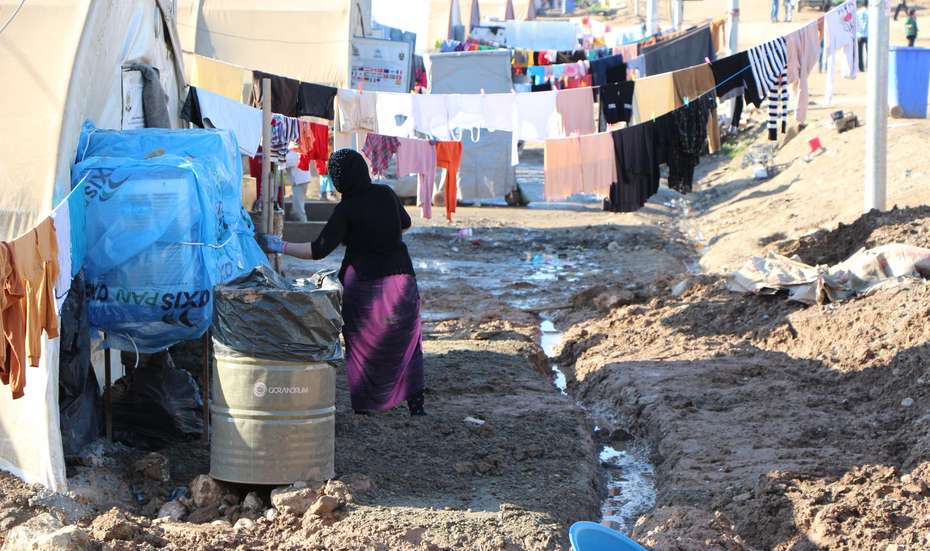
Welthungerhilfe will:
- Train staff and community facilitators on COVID-19 and use of Personal Protective Equipment (PPE) such as masks
- Disinfect and provide PPE, cleaning agents and disinfection equipment to health centres and schools in vulnerable communities
- Carry out Risk Awareness Communication, Hand-Hygiene Promotion, and Preventive Measures Communication through radio broadcasting, megaphones-speaker systems, SMS, posters, banners etc; – including as part of Welthungerhilfe's more than 500 ongoing projects worldwide
- Implement community engagement and peer-to-peer education through community leaders while adhering to physical distancing measures
- Support local authorities to strengthen their awareness raising effort and referral mechanisms
- Support vulnerable people to access health care, for example by organising medical camps
- Support Ministries of Health/Governments with active tracing and referral of confirmed and suspected cases
- Map and identify vulnerable settlements to support improving their hygiene conditions and to give access to essential services
- Reduce or mitigate conditions in overcrowded shelters by supporting vulnerable families with multipurpose cash transfers and/or other means of Cash & Voucher Assistance to cover their expenses, including payment for rent
- Distribute needs-based, context appropriate NFI assistance in order to cover basic family needs
- Work alongside our partners to invest in preparedness for further waves of COVID-19 infection, or for the next pandemic
Water, Sanitation and Hygiene (WASH)
The simple existence of WASH infrastructure significantly increases the probability that people will adhere to preventive measures in the long term. However, as per WHO and UNICEF statistics, 1.4 billion people do not have any facilities for washing their hands, and another 1.6 billion people lack water or soap for effective hand washing.
WHH is implementing over a hundred projects worldwide either focussed on WASH or in which WASH is a key component. In 2019 our WASH interventions reached around three million people, primarily located in rural areas of sub-Saharan Africa and South- and South-East Asia. The COVID-19 pandemic requires an adaptation and expansion of WASH activities in all countries where WHH is working. All WASH subsectors are affected: i) the provision of safe water ii) access to sanitation including environmental health and waste management, iii) hygiene promotion (with a focus on risk behaviour adaptation) and iv) WASH coordination.
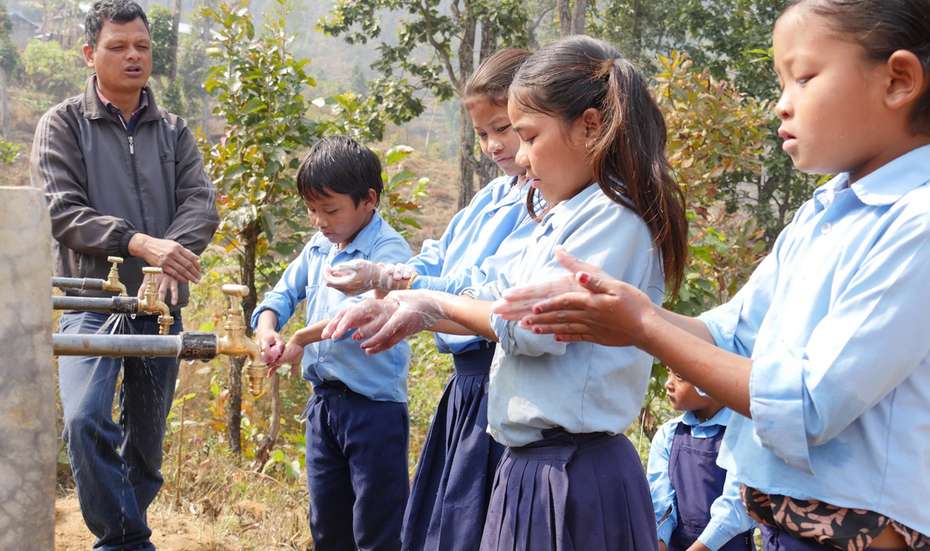
Welthungerhilfe will:
- Support national and local structures in the design, procurement and use of information materials related to COVID-19 in pictorial form and in local languages
- Increase water supply and install latrines and hand washing facilities in public places such as markets, health facilities, places of worship, and schools
- Provide Cash & Voucher Assistance for access to soap, disinfectant/chlorine, water containers and other hygiene items,or distribute hygiene kits
- Support the provision and maintenance of adequate WASH facilities to health and quarantine structures
- Advocate with the governments in the countries where we work to increase community budgets and education budgets to provide basic good quality WASH services in schools in a sustainable manner
Food nutrition security, agriculture, and economic development
The COVID-19 pandemic hits the poorest people hardest. Long-term development measures are needed.
The COVID-19 pandemic hits poorest people the hardest and threatens to massively aggravate hunger levels globally. In the countries where we work, most people living in urban areas earn money in the informal sector: missing work for more than a couple of days due to movement restrictions may mean they cannot buy food, medicine or other essentials. In rural areas, smallholder farmers will not produce as much – either because they cannot access their fields, because they cannot access markets to buy seeds and other agricultural inputs; or because they choose to grow less as they have lost confidence in being able to sell their produce in future. These effects are often compounded by regional disasters such as desert locust outbreaks and floods.
With less food produced and sold locally, and disruptions to the import and/or transport of food from elsewhere in the country, there are food shortages and price increases. The poorest can no longer afford to eat a sufficient quantity and quality of food, and their nutritional status thus deteriorates. School closures cause students to miss out on school meals and families face the additional burden of providing these meals to their children.
WHH operates in countries where the prevalence of chronic and acute malnutrition is high; combined with the widespread reduced access and use of health care services, malnourished women and children and other vulnerable family members are now at even greater risk should they become infected by COVID-19.
WHH will assist recovery and resilience building by providing support to rebuilding the agriculture sector all along the food value chain and increasing the availability and consumption of nutrient-dense, micronutrient-rich foods at household level.
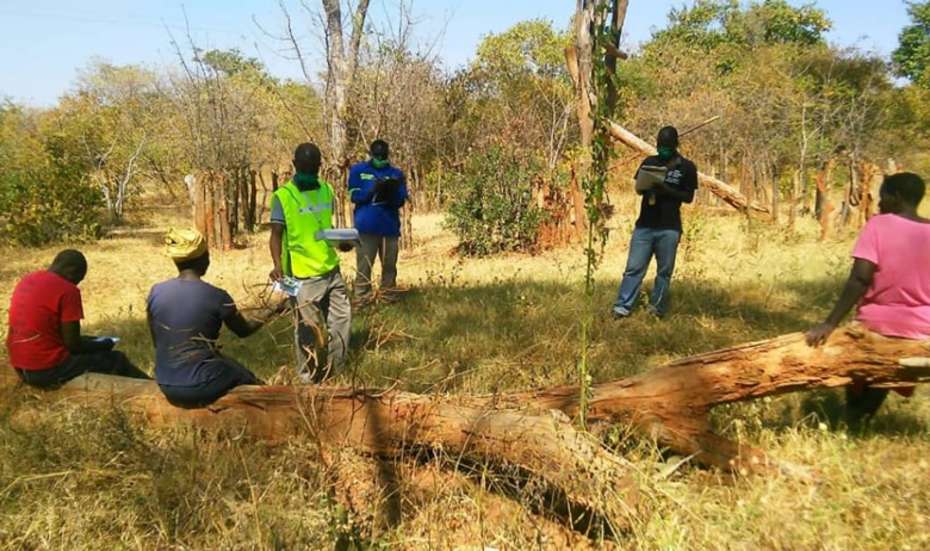
Welthungerhilfe will:
- Distribute food to persons in quarantine
- Provide complementary food assistance for vulnerable groups pushed further into food insecurity
- Run blanket supplementary feeding projects specifically for children aged 6-23 months and pregnant and lactating women
- Provide complementary Cash & Vouchers Assistance (CVA) to protect livelihoods
- Provide CVA or in-kind assistance to protect subsistence farmers, petty traders and others depending on daily income/production
- Organise Cash for Work or Food for Work instruments so people can obtain or buy food directly; this could also support projects such as afforestration (since planting trees would be possible with physical distancing)
- Provide seeds, equipment and other inputs so that farmers have the means to invest in the next harvest, despite market disruptions
- Strengthen local seed bank systems
- Organise school feeding programs once schools reopen to improve children’s nutrition status
- Increase home gardening and homestead food production
- Establish maternal, infant and young child feeding ‘IYCF corners’ for counselling and awareness raising at distribution points and health facilities
- Conduct social and behaviour change (SBC) interventions related to optimal maternal, infant and young child feeding (MIYCF) in the context of COVID-19 with appropriate teaching aids
- Modify existing and implement new farmer and nutrition training sessions (e.g. farmer field schools, nutrition camps) with smaller group sizes to respect social distancing
- Consider the presence in a household of a child suffering from Moderate Acute Malnutrition (MAM) or Severe Acute Malnutrition (SAM) and of pregnant or lactating women as a key selection criteria (in addition to COVID-19 risk groups) during household targeting for other community-level activities (agriculture, WASH, livelihoods, etc.)
- Support local production, provision and distribution of face masks by, for example, training and providing initial material for tailors
- Ensure that people can protect their livelihoods assets, and households are not forced to employ irreversible or riskier coping strategies (such as sale of livestock, sale of land, migration or child marriage)
Technological innovation
The COVID-19 crisis demands inventive humanitarian solutions which allow physical distancing while continuing to accelerate the fight against hunger. Below are two examples from Welthungerhilfe's work:
The Child Growth Monitor
WHH has been developing the Child Growth Monitor (CGM) app since 2018; based on Artificial Intelligence and virtual reality it will turn mobile devices into digital child measuring tools, enabling anyone with a smartphone to become an expert for anthropometric measurement. This will lead to a massive improvement in the detection of malnutrition and undernutrition, as the current physical measurement methods are complicated, costly and often deliver unreliable results.
With the onset of COVID-19 pandemic, the CGM becomes even more valuable, as the physical measurement of children has almost ground to a halt globally. To put the non-touch CGM tool into the hands of front-line health workers as fast as possible, WHH is accelerating the development of the App in order to release a beta version before the end of 2020.
Agricultural digital apps
WHH is using agricultural digital apps and social media to communicate COVID-19 inform-ation to rural communities. For example, using a bulk SMS distribution platform called In-fobip, text messages explaining how coronavirus is spread and how to minimise the risks of transmission have been sent to 35,000 farming households in Zimbabwe.
The physical distancing measures necessary to stop the spread of the virus mean that access to market is difficult for farmers, and many agricultural extension workers can no longer provide technical assistance to farmers. WHH has designed digital apps such as Agrishare (easily available on GooglePlay) and Zaulimi that allow small holder farmers in Zimbabwe and Malawi to access production, market and weather information services, and minimise the disruptions of physical distancing. The farmers use these apps to sell their produce online, rent out or hire farm equipment, and access vast quantities of information that can help them with their own production, for example technical guidance about value chains for over 30 items including maize, soya beans, tomatoes, rabbits and fish.
Country insights
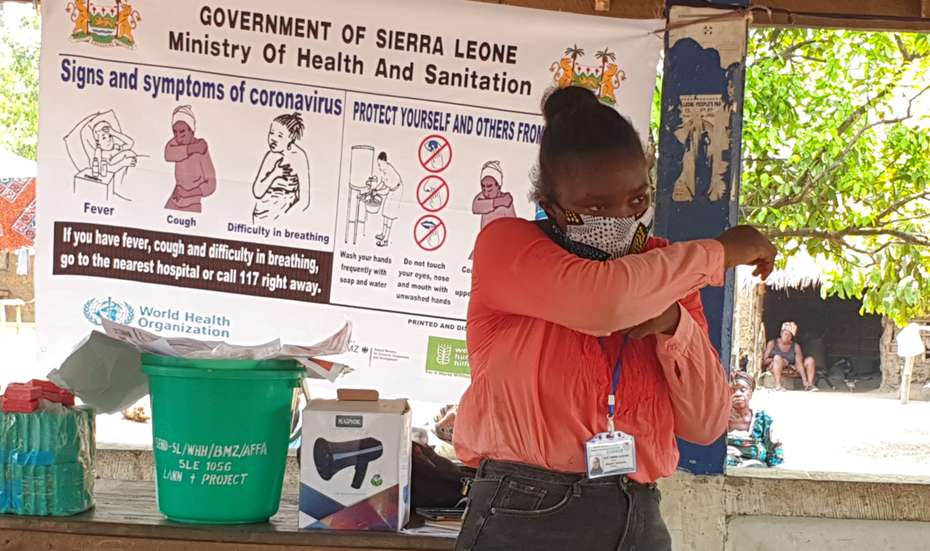
Help Us Raise €100 Million
You want to help us implement the COVID-19 programme? Then you are welcome to contact us!
Give us a call or write an email. We will gladly provide you with further information and answer your questions.




